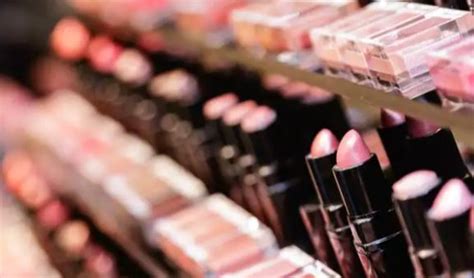How to Spot Fake Sports Drinks: A Comprehensive Guide
What are the Common Signs of Counterfeit Sports Drinks?
In the world of sports and fitness, staying hydrated is paramount, and sports drinks play a crucial role in replenishing electrolytes and providing energy. However, the increasing popularity of these beverages has also led to the rise of counterfeit sports drinks that can be harmful to your health and compromise your athletic performance. It is essential to be aware of the common signs of counterfeit sports drinks to ensure you’re consuming genuine, safe, and effective products.
Here are some key indicators to watch out for:
- Unusual Packaging: Look for inconsistencies in the packaging, such as misspellings, blurry or distorted images, uneven printing, or a different font than the genuine product. Counterfeiters often use low-quality materials and printing methods, which can be easily detected.
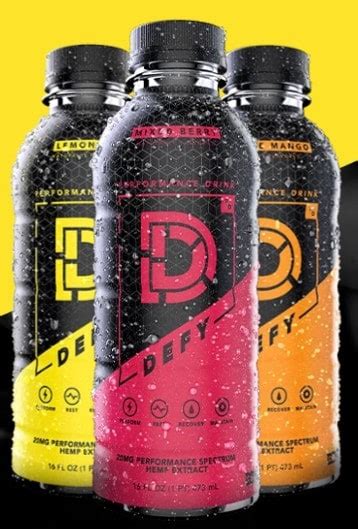
- Suspicious Pricing: Counterfeit sports drinks are often sold at suspiciously low prices, especially if they are offered online or in unauthorized retail outlets. Be wary of deals that seem too good to be true.
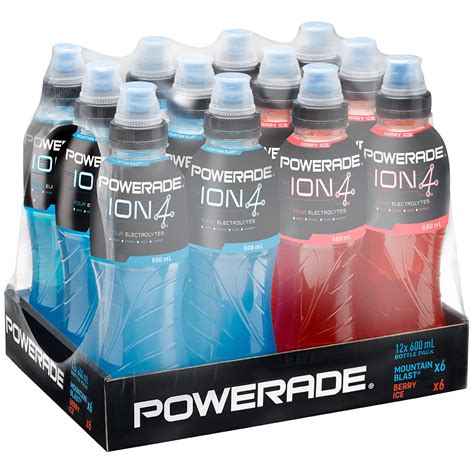
- Missing or Incorrect Ingredients: Check the ingredient list for any unusual or misspelled components. Counterfeit sports drinks may contain ingredients not found in the genuine product, or the ingredients may be listed incorrectly.
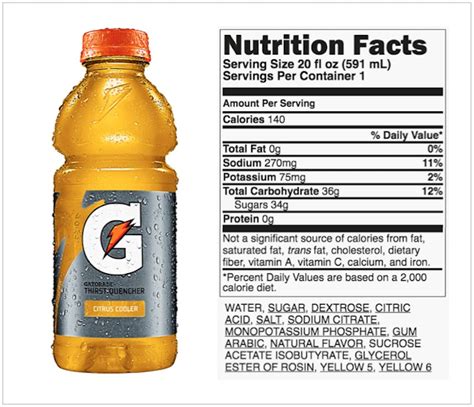
- Unsealed or Tampered Packaging: Look for any signs of tampering or damage to the packaging. The seal should be intact, and the container should not show any signs of being opened or resealed.
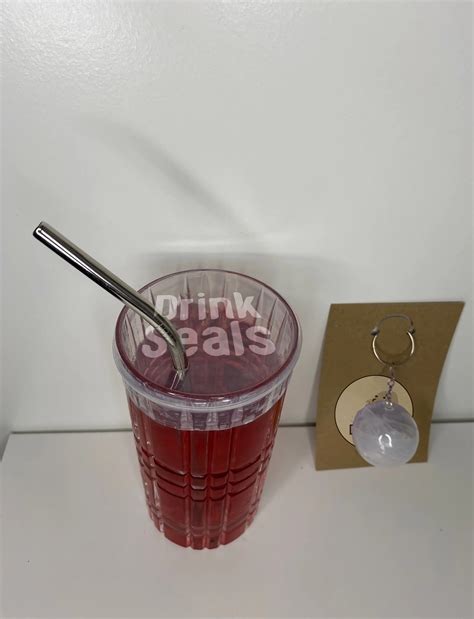
- Strange Taste or Color: Counterfeit sports drinks may have a strange taste or color, as counterfeiters often use inferior ingredients. The color may be duller or inconsistent with the genuine product.
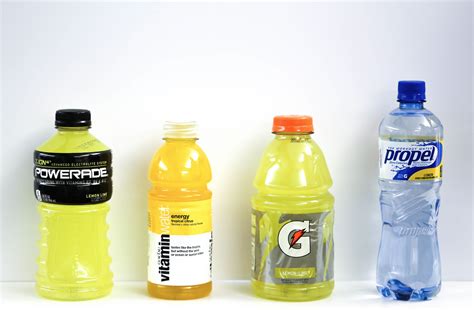
- Unfamiliar or Unregistered Brand: Be cautious of sports drinks from unfamiliar or unregistered brands. If the brand name seems unfamiliar or there’s no clear information about the company, it’s best to avoid it.
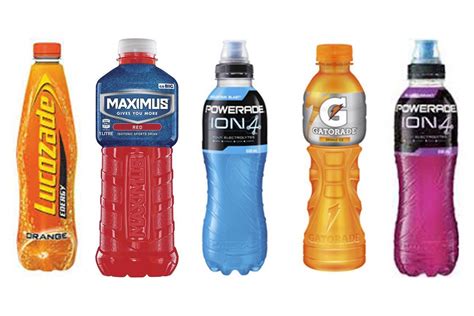
It’s also worth noting that counterfeiters are constantly evolving their techniques, so it’s important to be vigilant and stay informed about the latest scams. Consider using reputable retailers, reading online reviews, and checking for authenticity certificates to minimize your risk of encountering counterfeit sports drinks.
Can I Use a Counterfeit Sports Drink if It’s Cheaper?
While the tempting lure of a cheaper price may be appealing, it’s crucial to remember that counterfeit sports drinks can pose serious health risks. The ingredients in these products may not be adequately regulated, and they could contain harmful substances, toxins, or allergens.
Here’s why it’s never a good idea to use a counterfeit sports drink:
- Health Risks: Counterfeit sports drinks may contain harmful chemicals, heavy metals, or other contaminants. These substances can lead to a variety of health problems, including stomach upset, allergic reactions, headaches, and even liver or kidney damage.
- Ineffective Hydration: The electrolyte balance in counterfeit sports drinks may be inaccurate, potentially leading to dehydration or electrolyte imbalances, which can negatively impact your athletic performance and overall health.
- Lack of Quality Control: Counterfeiters often operate without proper quality control measures. This can result in inconsistencies in the product, making it unreliable for consistent hydration and energy replenishment.
- Ethical Concerns: Purchasing counterfeit sports drinks supports illegal activities and harms legitimate businesses that produce high-quality products. By choosing authentic sports drinks, you contribute to a fairer market and discourage counterfeiting.
In addition to health risks, using counterfeit sports drinks can also affect your athletic performance. The lack of essential electrolytes and proper ingredients can result in fatigue, muscle cramps, and reduced endurance, hindering your ability to reach your fitness goals.
How Can I Spot a Fake Sports Drink?
There are a few ways to spot a fake sports drink:
- Look for a hologram: Genuine sports drinks often have a hologram on the packaging, which can be difficult to replicate. If you can’t find a hologram, or if it seems off, it’s a good sign the product could be fake.
- Check for a batch code: Most genuine sports drinks have a batch code on the packaging. You can enter this code into the manufacturer’s website to verify its authenticity.
- Look for a seal of authenticity: Some manufacturers use a seal of authenticity on their products to help consumers identify genuine products. The seal should be intact and not damaged.
- Check the website: If you’re buying a sports drink online, check the website to ensure that it’s authentic. Look for a contact number, address, and other information that suggests a legitimate business.
- Ask for a refund: If you’re not sure if a sports drink is fake, ask the seller for a refund. Legitimate sellers should be willing to refund your purchase if you’re not satisfied with the product.
What Are the Health Risks of Drinking Counterfeit Sports Drinks?
Consuming counterfeit sports drinks can pose a significant threat to your health. These products may contain harmful chemicals, contaminants, or substandard ingredients, leading to various adverse effects.
Here are some potential health risks associated with counterfeit sports drinks:
- Gastrointestinal Problems: Counterfeit sports drinks may contain ingredients that can cause stomach upset, nausea, vomiting, or diarrhea. This can disrupt your hydration levels and make it challenging to recover from workouts.
- Allergic Reactions: Counterfeiters may use undisclosed ingredients that could trigger allergic reactions. These reactions can range from mild skin rashes to severe anaphylaxis, which can be life-threatening.
- Electrolyte Imbalances: Counterfeit sports drinks may contain inaccurate electrolyte levels, leading to dehydration or electrolyte imbalances. These imbalances can cause muscle cramps, fatigue, weakness, and dizziness.
- Heavy Metal Contamination: Some counterfeit sports drinks may contain heavy metals such as lead, mercury, or cadmium. These toxic substances can accumulate in your body and damage your kidneys, liver, and nervous system.
- Long-Term Health Complications: Frequent consumption of counterfeit sports drinks can increase your risk of chronic health conditions like heart disease, diabetes, and cancer.
What Should I Do If I Suspect I’ve Consumed a Counterfeit Sports Drink?
If you suspect you have consumed a counterfeit sports drink, it’s essential to take immediate action to protect your health. Here’s what you should do:
- Contact a Doctor: Seek medical attention immediately if you experience any unusual symptoms after consuming a sports drink. Explain your concerns about the product and any potential health risks. A doctor can assess your condition and provide appropriate treatment.
- Report the Incident: Report the incident to the relevant authorities, such as the Food and Drug Administration (FDA) or the National Consumer Protection Agency. This information can help prevent further cases of counterfeit sports drink distribution.
- Dispose of the Product: Dispose of the counterfeit sports drink safely, following local regulations. Avoid throwing it in the trash or recycling bin, as it could pose a risk to others.
- Share Your Experience: Share your experience with friends, family, and online communities to warn others about the dangers of counterfeit sports drinks.
How Can I Be Sure I’m Buying a Genuine Sports Drink?
To ensure you’re purchasing genuine sports drinks, it’s crucial to take precautions and practice due diligence. Here’s a comprehensive guide for responsible buying:
- Shop at Reputable Retailers: Purchase sports drinks from trusted retailers, such as major grocery stores, pharmacies, and sports equipment stores. Avoid buying from unauthorized vendors or online marketplaces with questionable reputations.
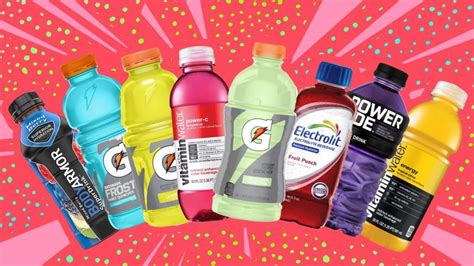
- Check for Authenticity Certificates: Some sports drink manufacturers provide authenticity certificates on their packaging. Look for these certificates and verify their legitimacy through the manufacturer’s website or by contacting their customer service.
- Read Online Reviews: Before buying a sports drink, read online reviews from verified customers. These reviews can provide insights into the product’s quality and authenticity, and alert you to any potential counterfeit issues.
- Compare Prices: Compare prices from different retailers to ensure you’re not being offered a suspiciously low price. Beware of deals that seem too good to be true, as they may indicate counterfeit products.
- Be Cautious of Online Deals: Exercise caution when buying sports drinks online. Ensure the website is secure and uses HTTPS protocol. Verify the seller’s contact information and reputation before making a purchase.
- Contact the Manufacturer: If you have any doubts about the authenticity of a sports drink, contact the manufacturer directly through their website or customer service line.
Table Summarizing Information on Counterfeit Sports Drinks
| Feature | Genuine Sports Drink | Counterfeit Sports Drink |
|---|---|---|
| Packaging | High-quality, consistent printing, accurate labeling, intact seals. | Low-quality materials, misspellings, blurry images, uneven printing, tampered seals. |
| Price | Consistent with market value. | Suspiciously low prices, especially when sold online or in unauthorized outlets. |
| Ingredients | Clearly labeled and accurate ingredients. | Unusual, misspelled, or inaccurate ingredients. |
| Taste and Color | Consistent taste and color, as expected for the brand. | Strange or inconsistent taste, dull or unusual color. |
| Brand | Well-established and reputable brand. | Unfamiliar or unregistered brand, with limited information available. |
| Authenticity | Holograms, batch codes, seals of authenticity, manufacturer website verification. | Missing or fraudulent holograms, missing or inaccurate batch codes, damaged or missing seals. |
| Health Risks | None, as long as consumed as directed. | Gastrointestinal problems, allergic reactions, electrolyte imbalances, heavy metal contamination, long-term health complications. |
Frequently Asked Questions
What Happens If I Drink Counterfeit Sports Drinks Regularly?
Consuming counterfeit sports drinks regularly can have serious long-term health consequences. The repeated exposure to harmful substances, contaminants, and unregulated ingredients can lead to chronic health problems, such as:
- Liver Damage: Counterfeit sports drinks may contain heavy metals like lead and mercury, which can accumulate in your liver and cause damage over time.
- Kidney Damage: Heavy metals and other toxins can also harm your kidneys, impairing their ability to filter waste products from your blood.
- Cardiovascular Problems: The irregular electrolyte levels in counterfeit sports drinks can disrupt your heart rhythm and increase your risk of cardiovascular disease.
- Neurological Disorders: Certain toxins in counterfeit sports drinks can affect your nervous system, leading to neurological problems like headaches, dizziness, and memory impairment.
- Increased Cancer Risk: Some studies suggest that prolonged exposure to certain contaminants in counterfeit sports drinks could increase your risk of developing cancer.
In addition to these health risks, drinking counterfeit sports drinks regularly can also have a negative impact on your athletic performance. The inconsistent ingredients and lack of essential electrolytes can lead to fatigue, muscle cramps, and reduced endurance, hindering your progress towards your fitness goals. It’s crucial to prioritize your health and performance by choosing genuine, safe, and effective sports drinks.
How Can I Tell if a Sports Drink is Fake?
Here are some additional tips to help you identify fake sports drinks:
- Check for a QR code: Many sports drink brands use QR codes on their packaging that can be scanned to verify the product’s authenticity. If the QR code doesn’t lead to the manufacturer’s website or if it doesn’t work, it could be a sign that the product is fake.
- Look for a unique identifier: Some brands use unique identifiers on their packaging, such as a serial number or a batch code, to help consumers verify the product’s authenticity. You can often find this information on the manufacturer’s website.
- Compare the packaging: Compare the packaging of the sports drink with pictures of the genuine product found on the manufacturer’s website. Look for any discrepancies in the design, font, or color of the packaging.
- Use a UV light: Some sports drink brands use security features on their packaging that are visible under UV light. If you shine a UV light on the packaging and don’t see any security features, it could be a sign that the product is fake.
- Trust your instincts: If you have any doubts about the authenticity of a sports drink, it’s best to err on the side of caution and avoid purchasing it. Your health and safety are more important than saving a few dollars.
By following these tips and remaining vigilant, you can help ensure that you’re buying genuine sports drinks and protecting yourself from the risks associated with counterfeit products.
Is It Safe to Drink Counterfeit Sports Drinks?
No, it is not safe to drink counterfeit sports drinks. While they may seem like a cheaper alternative to genuine products, they pose a serious threat to your health. The ingredients in counterfeit sports drinks are often unregulated and may contain harmful substances, toxins, or allergens. These substances can cause a variety of health problems, including stomach upset, allergic reactions, headaches, and even liver or kidney damage.
Additionally, counterfeit sports drinks may not provide the same level of hydration and electrolyte replenishment as genuine products. This can negatively impact your athletic performance and overall health. It’s crucial to remember that your health is worth investing in, and choosing genuine sports drinks from reputable retailers is the best way to ensure you’re getting a safe and effective product.
Why Are People Selling Counterfeit Sports Drinks?
The primary motivation behind the sale of counterfeit sports drinks is profit. Counterfeiters aim to capitalize on the high demand for popular sports drink brands by producing and distributing fake products at much lower costs. They often target consumers looking for a cheaper alternative, without considering the potential health risks. By understanding the motivations behind counterfeiting, we can better understand the need to be vigilant and take steps to avoid these harmful products.
It’s also important to note that the sale of counterfeit sports drinks not only harms consumers but also legitimate businesses. It undermines fair competition and disrupts the market for genuine products. By choosing genuine sports drinks and supporting legitimate businesses, we can help create a fairer market and discourage the production and sale of counterfeit products.
How Can I Report a Counterfeit Sports Drink?
If you come across a counterfeit sports drink, it’s essential to report it to the appropriate authorities. This will help prevent further distribution and protect others from potential health risks. Here are some organizations you can contact:
- Food and Drug Administration (FDA): The FDA is responsible for regulating food and drug products in the United States. You can report counterfeit sports drinks to the FDA through their website or by calling their consumer hotline.
- National Consumer Protection Agency (NCPA): The NCPA is a non-profit organization dedicated to protecting consumers from fraud and deceptive business practices. You can report counterfeit sports drinks to the NCPA through their website or by contacting them directly.
- Local Law Enforcement: You can also report counterfeit sports drinks to your local law enforcement agency, as they may be able to investigate the source of the product and take action against the seller.
By reporting counterfeit sports drinks, you can play an active role in protecting yourself and others from the potential health risks associated with these products. Every report helps to crack down on counterfeiters and create a safer market for genuine products.
